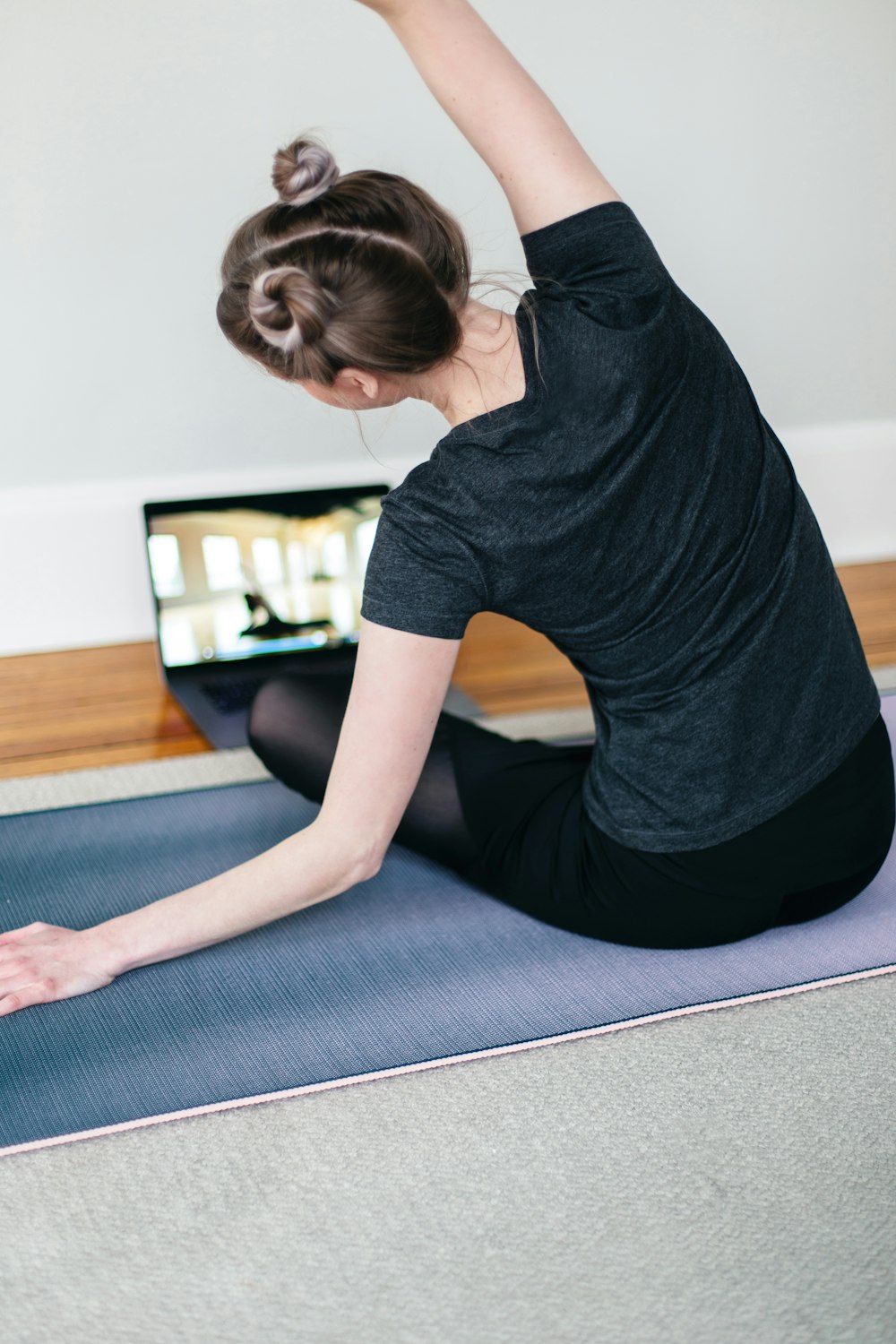
Most people get extremely hyped up at the beginning of the year, month, or week to change something about themselves or their lifestyle. You see it everywhere. Gyms get bombarded with new members by the 3rd of January, classes get packed with students on Monday morning, and even churches get more attendance on the first Sunday of each month. Do you recognize the pattern?
In chemistry, in order for any reaction to occur, there needs to be an activation energy for the new bonds to form or break. The reactants rise in a steady slope upward then level out at the top where the transition occurs and then slide back down in a similar fashion to the final state as products.
The problem is that with humans, most people launch off from the initial state at high speeds and then burnout in the middle of a rising slope, never reach the transition peak to overcome the activation energy and so they never come gliding back down to the final product.
Our slopes are vertical instead of diagonal. In other words, most of us do not have the energy or patience to do small things over and over and over. Instead, we want a 180 degree transformation from the rotation of a few degrees. Math does not work that way and neither would your life. Do you get the analogy?
I’m not going to tell you the obvious: you have got to be patient. You don’t. You don’t really need to occupy your mind with being patient right now. There is a more effective way to stick with a habit until you see results (however long it may take to get there). Are you ready to find out?
- Make it Pleasurable by Rewarding Yourself
I have a friend who has been wanting to start an exercise regime for a whole year and still has not done it. He has plenty of time in his day to do it and has the financial and physical means to buy a few pieces of equipment or go to a gym if he wanted to, yet he still doesn’t go.
When I asked him why, he said that he is afraid of the pain and the hard work! I thought he didn’t have time, but it turns out he is just intimidated by the idea of suffering. I realized that this is why most people procrastinate: to avoid discomfort.
So, the real key to getting yourself to keep up with a habit is to make it enjoyable. If it produces enough pleasure for your little neurons, you’ll find yourself wanting to do more and more of it. When I say pleasure, I don’t mean eating a Taco Bell beef burrito after an hour on the stair climber, for there is no real reward in canceling good gains.
By pleasure I mean make it rewarding. If you finish your AP Calculus homework, then you can get a 10 minute break to text your bestie or make a nice smoothie and chill in the sunshine. If you finish that AP Literature essay on Saturday morning, you can get Saturday evening to watch Grey’s Anatomy or hangout at Shari’s with your girlfriends.
That said, the reward must not be an action or activity that will counter your progress or hinder you from making further progress. I don’t recommend browsing social media for a study break for the same reason it would be terrible to eat at a fast food place after a good workout. It doesn’t mean you don’t do them at all; choose a time specifically dedicated to indulging in those activities.
Don’t let doing a “potentially destructive activity” be your reward after you’ve done a “potentially self-advancing activity”. Why? Because it creates a tension in your brain that furthers the labelling of difficult activities as “boring” and the easy, pleasurable ones as “fun.” Nod if you understand.
2. Make the Simplest Form of that Habit
In the same way, some people can be discouraged by discomfort, others can be discouraged by the complexity of a task. If you have a huge project or presentation, it may seem daunting to get it going. Where will I even start??? And so you never do.
For that reason, you should always take the simplest, most convenient action to get started and then break down the remainder of the project into similar low-cost steps. My friend that I mentioned earlier didn’t start exercising because going to a gym was such an overwhelming concept for him. He didn’t know how to use any of the machines, how to structure a workout, or how to actually perform a move. Anybody would be scared as well. You don’t just jump in an ocean if you have never swum in a pool.
Instead of signing up for a gym when you haven’t worked out in two years, maybe you should start with a little yoga routine in the comfort of your own home.

Instead of being intimidated by the idea of working out, he should have started by going on 10 minute walks everyday. When he has mastered that and it becomes a part of his routine, he should have added a few basic no-equipment exercises, and so on.
To stick with anything, you must first want to do it everyday, and to want to do it everyday, it must be simple and enjoyable.
3. Forget about Results
If you’re preoccupied with the grade you will get on the test, you’ll be frustrated with yourself when you’re studying. If you train solely for a better performance on the race, then the training will seem like a chore. Never do something for the sake of something else; the action itself must be meaningful. You must ignore the “progress” and focus on the “process”.
Will Smith said it better: “You don’t set out to build a wall. You don’t say ‘I’m going to build the biggest, baddest, greatest wall that’s ever been built. ‘ You don’t start there. You say ‘I’m gonna lay this brick as perfectly as a brick can be laid,’ and you do that every single day, and soon you have a wall.”
Progress checks are great. Practicing for a test is awesome. Training for a race is superb. But don’t be consumed by the end goal. Learn to love the actions leading up to it instead of the finish line itself. Why? Because the destination is a very small fraction of any achievement. The bulk of the achievement is in the journey to it, all the actions that take up your days to get there. How many hours do you study in a week for a specific exam? How many hours is the actual exam? Exactly.
If you waste all those hours (potentially years) stressing out about the grade on test day or enforcing your goal of doing good on the exam, you’ll never be truly invested in the action of studying and never reach your ultimate goal of learning the content.
So, drop the “How many pounds did I lose this month?” mentality and adopt the “How do I feel in my body today?” mindset. Forget the “Yay! I got an A on that AP Euro quiz!” and ask yourself “Would I be able to teach that content to a five-year old?” or “If I were to be employed today as a historian would I be able to analyze a historical document like I did in that DBQ?”
Those are the important questions. The questions that we often lose sight of on our path to getting higher grades and bigger numbers and all the results we daydream about. If you don’t learn to truly value and enjoy the daily actions, forget about being happy when you get the results that you want.

In all truth, the statistics are the most superficial thing about any human achievement. My race time is the last thing I care about in the middle of a Cross Country race. The only thought my brain can handle at that very weak moment is: how do I get one foot in front of the other without collapsing on the ground? How do I breathe this next inhale without my lungs imploding into themselves?
And just like that, step after step, breath after breath, the race comes to an end. The time in which I completed it or my placing in it matter so little compared to the feeling of having battled those weak thoughts in my mind and not giving up. And that’s why even if I come last in a race, I will still be the champion in my own mind.
If you have read this far, I encourage you to carry that mindset with you wherever you go and with whatever you pursue.